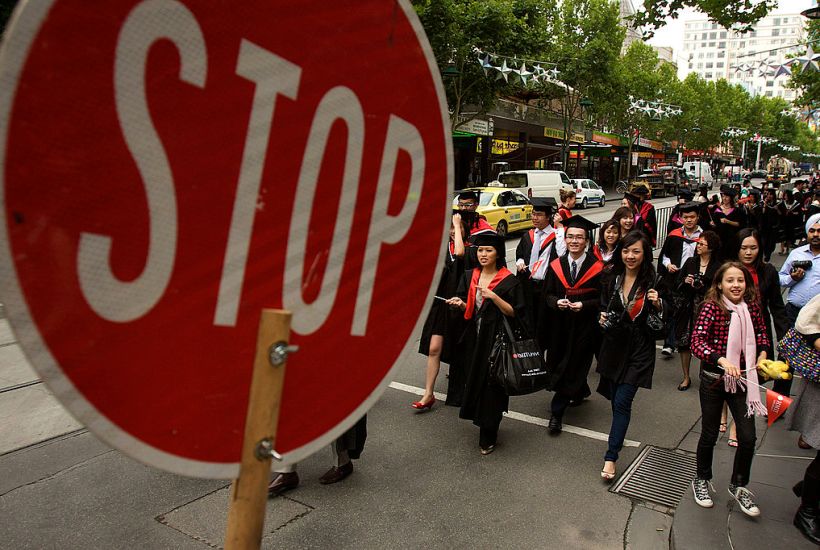Universities have been admitting too many students, a greater proportion are now struggling, their debts have soared, and the payoff for those that graduate has waned, according to the Productivity Commission.
Last week’s PC report was critical of the former government’s model of university funding, and surely silences any doubts that the decision to scrap it was a winner. The demand-driven model, in place from 2012 to 2017, uncapped the number of university student enrolments and saddled taxpayers with a hefty subsidy for their places — irrespective of the volume of students admitted.
In light of the PC’s verdict, the universities and their representative bodies must yield their rusted-on opposition to the unwinding of the demand-driven model.
During consultations reviewing a possible performance-based funding model earlier this year, close to half of all those making submissions took the trouble to express objections to the dismantling of the demonstrably flawed demand-driven scheme. Spoiler alert: they were also not all that keen on the government’s plans to apply greater performance-based funding arrangements either (by providing incentives for those that perform well, rather than handing out blank cheques).
The message from the sector: continue to fund based only on the number of students admitted, rather than the quality of teaching.
This confirms again how seemingly tone-deaf the taxpayer-subsidised sector has become. This is at the same time that universities have also been found on the wrong side of recent free speech and political correctness issues.
With the PC’s verdict, we might just see the sector right its course. But if we have learned anything lately, it’s that universities can be hard to shake, and none too fond of being held to account for their finances. This should not weaken the resolve of the government in pursuing performance-based funding.
Finding fault is one step on the pathway to redemption. An admission of error should follow. However, as the dust settles, don’t be surprised to hear a deathly silence from the sector where a mea culpa ought to be.
The government should also recognise that its supply-driven model is no panacea either. It is well past time that something resembling a free market drove the university sector, but there is a long road to get us there. In the meantime, the PC has given the government a nod that it was on the money freezing funding — adding in a lever for performance is not a bad place to go next.
Glenn Fahey is a research fellow in education policy at the Centre for Independent Studies.
Got something to add? Join the discussion and comment below.
Got something to add? Join the discussion and comment below.
Get 10 issues for just $10
Subscribe to The Spectator Australia today for the next 10 magazine issues, plus full online access, for just $10.


























Comments
Don't miss out
Join the conversation with other Spectator Australia readers. Subscribe to leave a comment.
SUBSCRIBEAlready a subscriber? Log in